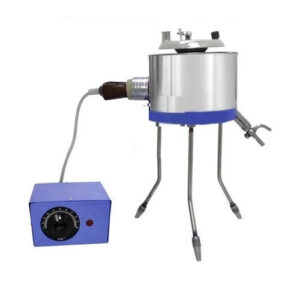Contents
- 1 Bitumen Tests
- 2 Bitumen Penetration Test
- 3 Bitumen Softening Point Test
- 4
- 5 Bitumen Ductility Test
- 6 Bitumen Viscosity Test
- 7 Bitumen Specific Gravity Test
- 8 Bitumen Solubility Test
- 9 Bitumen Flash and Fire point Test
- 10 Bitumen Loss on Heating Test
- 11 Bitumen Spot Test
- 12 Bitumen Drop in Penetration Test
- 13 Float Test
- 14 FAQ
- 14.1 What is bitumen?
- 14.2 Why is testing bitumen important?
- 14.3 What are the common tests conducted on bitumen?
- 14.4 What is the penetration test for bitumen?
- 14.5 What does the softening point test determine?
- 14.6 What is the purpose of the viscosity test for bitumen?
- 14.7 What does the ductility test reveal about bitumen?
- 14.8 Why is the flash and fire point test performed on bitumen?
- 14.9 What does the specific gravity test indicate about bitumen?
- 14.10 Are there any performance tests conducted on bitumen?
- 14.11 Who conducts bitumen test?
- 14.12 How are the Bitumen test results used in practice?
- 14.13 What are the national and international standards governing bitumen test ?
Bitumen Tests
Since Bitumen is one of the main materials in road construction, its properties have to be tested by different bitumen tests before application.
These tests help us to examine bitumen quality before using it and know the behavior of bitumen during its lifetime. Some bitumen tests can also be used to classify bitumen by its physical properties.
If you are interested to know more details about these bitumen tests, follow the Infinity Galaxy Bitumen Test article. Also, we have a brief explanation of the 10 bitumen tests here.
Bitumen Penetration Test
The penetration test of bitumen determines the bitumen consistency. This test is used for grading bitumen based on penetration value or in other words its hardness.
For very soft materials with low viscosity such as tars, penetration tests cannot be carried out.
The procedure of this test is as below:
In a bitumen penetration test, a needle with a loading of 100 grams penetrates the bitumen vertically for five seconds at a temperature of 25 degrees Celsius.
The higher the penetration of the needle in the bitumen, the higher the bitumen grade. Eventually, the softer bitumen.
Bitumen Softening Point Test
It is not very clear at what temperature bitumen becomes totally liquid. Since the bitumen is one of the most important components of asphalt, in hot regions, when the temperature rises, it becomes too soft.
In this condition, it loses its ability of adhering to the aggregates and the asphalt loses its uniformity.
So, by using bitumen softening point test, it is feasible to find out at which temperature the bitumen starts to melt gradually and become soft.
In general, the softening point of penetration grade bitumen and viscosity grade bitumen decreases as penetration increases. In fact, softer bitumen gradually melts at lower temperatures and its thermal resistance is lower.
For this test, the bitumen sample is placed in two brass rings and two steel balls are placed on it. The assembly is placed in a warm water bath. When the bitumen coated steel ball hits the bottom of the beaker, the temperature should be measured. This temperature is the softening point temperature.
Bitumen Ductility Test
If the bitumen binder is ductile enough, it is capable of tolerating deflections that occur on the road. Consequently, the probability of cracking becomes lower and the life span of asphalt is increased.
The tester is filled with bitumen and is placed in a water bath. Then it is pulled at a temperature below its softening point. Ductility is the length before tearing apart a stretched bitumen.

Bitumen Viscosity Test
Viscosity tests measure the resistance of bitumen to flow. The higher the viscosity of the bitumen, the harder it is to flow. Consequently, it behaves more like a semi-solid matter.
The viscosity of a bitumen can also determine how well bitumen can compact aggregates together to form a uniform asphalt.
To perform this test, first the sample of bitumen should be placed in a viscometer. then the flow out time should be measured. The viscosity is calculated by multiplying the calibration coefficient of the viscometer by the time in seconds.

Bitumen Specific Gravity Test
Bitumen specific gravity test determines the ratio of bitumen weight to the weight of the water with the same volume.
Specific gravity can help to recognize the impurity of bitumen because impure bitumen has a higher specific gravity. Asphalt mixes with high specific gravity bitumen are low quality.
To perform the test measure the following then use the equations:
A= mass of pycnometer
B= mass of the pycnometer that is filled with water
C= mass of pycnometer about half-filled with the bitumen
D = mass of the pycnometer about half-filled with the material and the rest with distilled water
E = mass of the pycnometer filled with the bitumen.
For solid and semi-solid bitumen:
Specific gravity= (C-A)/[(B-A)-(D-C)]
For liquid bitumen:
Specific gravity=(E-A)/(B-A)
Bitumen Solubility Test
This test shows the impurity of the bitumen sample. The high quality bitumen binder should be 99% soluble in trichloroethylene.
To do the solubility test of bitumen, dissolve the 2 grams of bitumen sample in 125 ml of trichloroethylene. Then weigh the solution and filter it. In the last step wash the insoluble matter, dry it, and weigh it again.
Here is how to calculate the percentage of insoluble material:
Insoluble matter (%)= mass of insoluble materials/mass of bitumen sample
Bitumen Flash and Fire point Test
When flammable or combustible materials are heated, the vapor is generated near their surfaces. Flash point is the lowest temperature at which the vapor burns in the presence of an ignition source with an instant flame.
Fire point is the temperature higher than Flash point.
By Pensky-martens and Cleveland open cup tester these tests can be performed.
In Cleveland open cup testers, add bitumen to the test cup and then heat it. The flame moves over the surface of the cup. The sample vapor is sparking at the flash point, but the fire point is determined by continuing to heat the sample until a flame appears above it.
Bitumen Loss on Heating Test
Bitumen loss on heating tests measures the percentage of volatile components of bitumen. In construction, the bitumen binder loss on heating must be less than 1%.
A bitumen with a high amount of loss on heating will be hardened. As a result it becomes less flexible and brittle.
To calculate the loss in the bitumen heating test, 50 g of the sample is heated in the oven at 163 degrees celsius. A bitumen sample is then weighed.
Here is how you calculate the percentage of loss on heating:
Loss on heating (%) = [(Initial weight – Final weight)/Initial weight]*100
Bitumen Spot Test
During the refinery’s overheating, a spot test is performed on bitumen to ensure it has not been damaged.
To perform this test, add 10 ml of a solvent to a flask containing 2 grams of bitumen. Stir the solution for five seconds and place it in boiling water for 55 seconds. Do this repeatedly until all the bitumen is dissolved.
Place a drop on filter paper after it has cooled at room temperature.
If the trace of the drop is brown the test is negative. Inversely if the drop is brown with a black center the test is positive and the bitumen is damaged.
Bitumen Drop in Penetration Test
Drop in penetration after heating test measures the hardening of bitumen after heating. Also, it measures the percentage of volatile components (materials with low boiling temperature) in bitumen.
To perform this test, put the bitumen in the containers and apply the needle with a load of 100 grams for 5 seconds. Place the bitumen sample at 163 C for 5 hours in the oven.
Then remove the sample and let it cool. In the next step repeat the penetration test.
Drop in penetration value (%) =
[Difference between 2 amounts of penetration/initial amount] * 100
Float Test
Float test is used to determine the consistency of highly viscous bitumen samples.
To perform this test, heat the bitumen and pour into the collar and wait for it to cool.
After screwing the collar to the alumina float, put the assembly in a water bath with a temperature of 5 C. After the assembly reaches the temperature balance, transfer it to a water bath with a temperature of 50 C. Record the time as the water begins to flow through the material.
Infinity Galaxy has presented a complete report for each bitumen test that you can read on its website.
FAQ
What is bitumen?
Bitumen, also known as asphalt or asphalt binder, is a sticky, black, and highly viscous material used as a binding agent in road construction and other applications. It is a byproduct of the petroleum refining process.
Why is testing bitumen important?
Testing bitumen is crucial to ensure its quality and suitability for various applications. By conducting tests, it is possible to determine the physical properties, performance characteristics, and durability of bitumen, which helps in selecting the right grade for specific uses.
What are the common tests conducted on bitumen?
Several tests are performed on bitumen, including penetration test, softening point test, viscosity test, ductility test, flash and fire point test, specific gravity test, and various performance tests like rutting and fatigue resistance.
What is the penetration test for bitumen?
The penetration test measures the hardness or consistency of bitumen. It involves measuring the depth in tenths of a millimeter to which a standard needle penetrates vertically into a sample of bitumen under specific conditions of time, temperature, and applied force.
What does the softening point test determine?
The softening point test determines the temperature at which bitumen becomes soft enough to flow under the influence of heat. It provides an indication of the temperature susceptibility and the temperature range over which bitumen will perform satisfactorily.
What is the purpose of the viscosity test for bitumen?
The viscosity test measures the flow characteristics of bitumen at a specified temperature. It helps determine the resistance to flow and provides information about the handling and application properties of bitumen.
What does the ductility test reveal about bitumen?
The ductility test measures the distance in centimeters to which a standard briquette of bitumen can be stretched without breaking at a specified temperature and pulling rate. It indicates the bitumen’s ability to undergo deformation without cracking.
Why is the flash and fire point test performed on bitumen?
The flash and fire point test determines the lowest temperature at which bitumen vapor mixed with air can momentarily ignite or sustain a flame when subjected to an open flame or spark. It helps assess the safety aspects associated with the handling and storage of bitumen.
What does the specific gravity test indicate about bitumen?
The specific gravity test determines the density of bitumen relative to the density of water. It provides information about the bitumen’s purity, composition, and the presence of impurities, which can affect its performance.
Are there any performance tests conducted on bitumen?
Yes, various performance tests are conducted on bitumen, such as the rutting test, fatigue test, stripping test, and low-temperature cracking test. These tests assess the ability of bitumen to withstand traffic loads, resist cracking, maintain adhesion with aggregates, and perform under extreme conditions.
Who conducts bitumen test?
Bitumen test are typically conducted by laboratories equipped with the necessary equipment and expertise. These can be independent testing laboratories, research institutions, or quality control departments within construction companies or government agencies for Bitumen test.
How are the Bitumen test results used in practice?
The Bitumen test results provide valuable information for engineers, contractors, and manufacturers to select the appropriate bitumen grade for specific applications. The results help ensure that the chosen bitumen meets the required standards and will perform adequately in terms of durability, strength, and other desired properties.
What are the national and international standards governing bitumen test ?
Bitumen test is governed by various standards, including those set by organizations such as the American Society for Testing and Materials (ASTM), the International Organization for Standardization (ISO), and specific national standards bodies like the Indian Roads Congress (IRC), British Standards Institution (BSI), and the American Association of State Highway and Transportation Officials (AASHTO).







